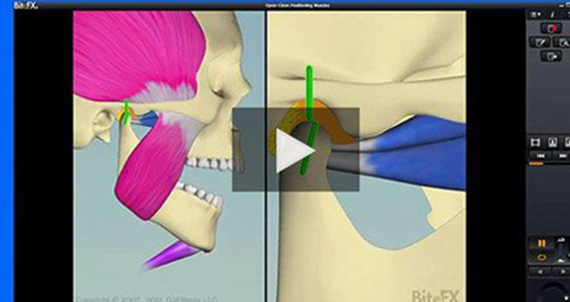How to Stop Tooth Sensitivity
Did you know that the American Academy of General Dentistry estimates that 40 million Americans have sensitive teeth? This means that 40 million Americans experience sudden pain when eating or drinking anything that is hot, cold, or sweet. This unfortunate phenomenon is known as tooth sensitivity and it can prevent people from enjoying their favorite foods and beverages.

Pain associated with tooth sensitivity is the result of the tooth’s nerve being irritated by external stimuli. Your teeth have three layers: enamel, dentin, and pulp. The enamel is the outermost layer that is responsible for protecting the tooth from external stimuli. The dentin is just underneath and contains microscopic tubules leading to the pulp chamber. The pulp is the innermost layer of the tooth that contains the tooth nerve and blood vessels. Therefore, if the enamel is compromised, it can allow external stimuli to reach the dentin and travel through the microscopic tubules into the pulp, where it hits the nerve.
Now that you know that, you are probably wondering how to stop tooth sensitivity so you can go back to enjoying a hot cup of tea on a cold day or a cold ice cream cone on a hot day. When it comes to stopping tooth sensitivity, there is good news and bad news. The bad news is that there is not one single thing that works for everyone. The good news is that once you understand the cause of tooth sensitivity, there are steps you can take to manage or eliminate it. Here are a few things that may be causing your tooth sensitivity and how to fix them.
Depending on the condition of your enamel, you may be able to build up the enamel. However, this is not always possible. To prevent tooth sensitivity from increasing, it is still recommended to avoid or minimize the aforementioned behaviors.
Tooth Decay
Another thing that can expose the dentin layer is tooth decay. The bacteria that cause tooth decay to sit on the surface of the tooth and produce acidic waste products. Over time, this erodes the enamel and causes a dental cavity. Not only do cavities expose the dentin layer, but they can also potentially allow bacteria to enter and infect the pulp chamber. Pulp infections are serious and can only be treated with a root canal.
If your tooth sensitivity is caused by tooth decay, it is imperative to have the cavity filled to prevent the spread of infection. Additionally, filling a dental cavity can potentially stop tooth sensitivity permanently.
Exposed Tooth Roots
Another cause of tooth sensitivity is exposed tooth roots. Although tooth roots have enamel, they have an extremely thin layer because they rely on protection from the gum tissue. Therefore if the gums recede and expose the roots, stimuli may be able to enter the tooth. Gum recession can be the result of brushing too hard or the presence of gum disease. By addressing these problems, you can prevent the gums from receding further and can even encourage them to reattach to the teeth.
To do this, first, make sure you are using a soft-bristled toothbrush and the right amount of pressure. An easy way to determine if you are using too much pressure is to look at the bristles of your toothbrush. If they are frayed out sideways, it likely means you are applying too much pressure while brushing. If your brushing technique seems fine, then you will want to be examined by your dentist for gum disease. The sooner gum disease is diagnosed, the more likely you are to reverse gum recession with treatment.
Damaged Teeth
Teeth that are cracked, chipped, or otherwise broken may provide a channel for bacteria to enter the tooth, causing pain and inflammation. This is especially likely if the damage surpasses the enamel layer.
The best way to manage tooth sensitivity caused by damaged teeth is to get the opinion of your local dental office. In most cases, they will likely schedule some type of restorative dental procedure.
As you can see, stopping tooth sensitivity is not a one-size-fits-all solution. Instead once must first identify why they are experiencing tooth sensitivity before they know what the best treatment approach is. Some cases of sensitivity may respond well to certain treatments, while others may not. Therefore, it is essential to visit your local dentist to ensure you are making the best decision for your smile.

Share this Article
Back to Blog Articles Page












